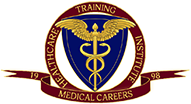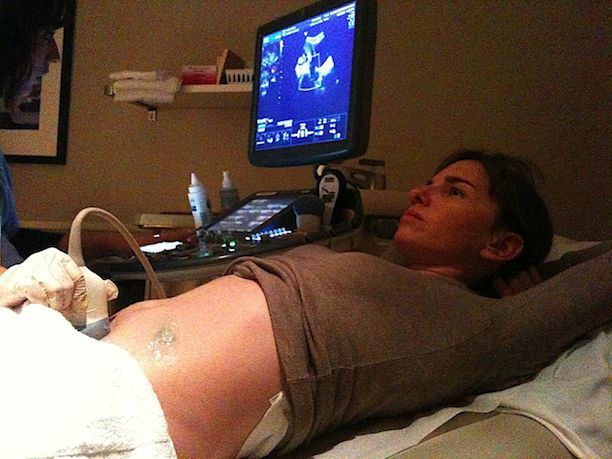There are many ways to achieve your dream of becoming an Ultrasound Technician, or Ultrasound Technologist; however there is a minimum education prerequisite required depending on which institution you apply to. This blog post discusses the paths students can take to achieve their goals of working as an Ultrasound Technologist (Technician) in New Jersey.
The job of an ultrasound technician is to use technology to examine developing fetuses in the womb, and examine abdominal and pelvic internal organs. Ultrasound Technicians (Technologists) aid doctors with the diagnosis and treatment of medical problems, and monitor the health of the fetus and mother for the duration of her pregnancy.
In order to become an Ultrasound Technologist, you must first attend an accredited Ultrasound Technician school in NJ, or Institutionally accredited program and receive training. There are two types of accreditations, Institutional and Programmatic, each one has advantages and disadvantages, depending on your pre-qualifications, time, and financial resources.
Step #1: What Is Your Educational Background?
In order to initially enroll in an ultrasound school in NJ, you will need a minimum of a High School Diploma or GED to participate. If you have additional schooling, such as an Associates or Bachelors degree, this will benefit you. Pre-requisites vary from school to school, so be sure to research them before you proceed. For example, our complete list of requirements is as follows:
Educational Requirements for Ultrasound Curriculum: (any ONE of the following is acceptable)
- Your Bachelors Degree – Any Major
- OR An Associate’s Degree in Allied Health:
- diagnostic medical sonographer
- radiologic technologist
- respiratory therapist
- occupational therapist
- physical therapist
- registered nurse
- & more
- OR a High School Diploma with a minimum GPA of 3.0.
- OR a High School Diploma with a minimum of one year work experience in a patient related field, PLUS pass a school entrance exam.
- Or a High School Diploma PLUS score a minimum passing score of 10 on the entrance exam.
- OR a High School Diploma PLUS you must have taken a state approved Allied Health Program (including but not limited to: Medical Assistant, Patient Care Technician, Medical Billing and Coding Specialist, etc.)
- Or a High School Diploma plus any other allied Program(s) or any combination of programs less than 500 hours but at least 200 hours. (This must be accompanied by a transcript showing a GPA of 3.0.)
As you can see, there are many ways you can enter into or participate in an Ultrasound training curriculum. You may wish to speak with a school Admissions representative directly to discuss all pre-qualification requirements of the Ultrasound program and how they apply to you. A member of the Admissions team can help explain your options. Call your ultrasound tech school in New Jersey and ask whether or not you are qualified to enroll based on your credentials.
It’s important to note that other schools may have different requirements. It is your responsibility to check the status of your qualification with a school representative before you proceed with enrollment. Some schools/Institutions require students to have a Bachelors degree or have taken formal college level courses, including general physics, biological science, algebra, and complete an Allied Health Program such as Medical Assistant, or obtain one year of work experience and more. Other schools may require their Ultrasound students to take pre-course modules and achieve a GPA of 3.0 within the curriculum before they’re even are able to take the regular Ultrasound course.
Don’t get discouraged if your credentials aren’t accepted by some schools. Make sure you understand all the pre-requisites your program requires and whether the school is accommodating of you.
Step #2: Complete an Ultrasound Program.
It’s highly recommended that you enroll in a 2-year accredited ultrasound technician school or program. If you want to fast-track your experience and participate in a shorter program, you may not find yourself adequately prepared for a career as an Ultrasound Technician (Technologist) and you might not be a competitive candidate in the job market. Employers want to hire a knowledgeable and skilled scanner—keep in mind you’ll be competing against others who have taken full 2 year programs or Programmatic programs when you enter the job market so it’s best to make sure your skills are comparable.
Towards the end of your Ultrasound curriculum, you’ll go on externship and learn hands-on clinical experience and important ultrasound skills in a health care setting. It is your chosen school/institute who should prepare you well to enter the clinical externship site because this is your first step in real world experience. They should not send you to your clinical site unless you are ready. Your school or institution should be happy to work with you individually to reinforce your basic scanning skills if necessary, and ensure you are fully prepared for your externship. Choose a school that offers more than 800 hours of externship experience, as the longer your externship the better outcome of employment.
Step #3: Start Your Career!
After you complete your 2 year program, you’ll be ready to apply for job in the field of Ultrasound. Your success will depend on scanning skills, on your attitude, and your willingness to go the extra mile.
You need one year of paid clinical work experience before you apply for the specialty exam (Registry Exam). If you’ve graduated from a Programmatic program, you will be eligible to sit for the Registry exam upon graduation from the program.
Choosing An Ultrasound Technician School in NJ That Meets Your Needs
The school/Institution you choose will depend on your status of education, time, and finances. It is up to you to determine the difference between all the available schools/Institutions who offer an Ultrasound program. All schools run under state approval and should be institutionally accredited by a nationally recognized accreditation commission or Programmatic accredidation. For example, HTI is accredited by New Jersey Department of Labor & Workforce Development and A.C.C.S.C, and approved by the United States Department of Education.
There is a list of prerequisites on the ARDMS.org website. We encourage you to browse the options and if you have any questions, please contact a representative to discuss.
No matter which educational path you choose, you will still end up at the same destination, preparing for the ARDMS exam. When you enter the workforce you’ll still have the same credentials and be able to advance your career as you wish.
Ultrasound Techs can find job openings at hospitals, doctor’s offices and health clinics. According to the US Bureau of Labor Statistics, the market is expected to increase 19 percent from its current level of 59,000 jobs, from now through 2018 so career options are looking bright!
If you have further questions, don’t hesitate to get in touch with us at (908) 851-7711.
Or read our Ultrasound graduate success stories!

